
Rugby’s Black Ferns on Keeping Girls in Sport
The best women’s rugby players explain why sport is much more than just a game.

Sport can be a game changer for many girls who are lucky enough to stick with it through their teenage years. The rewards can be seen long after their school-playing days in their further education, at work or – for some – in their semi- or professional sports careers.
Meet Eloise Blackwell and newly appointed captain, Les Elder of the New Zealand Black Ferns, the world’s number one women’s rugby team. Thanks to the support of their families, schools, clubs and the wider community their talent with the oval ball was supported and nurtured, helping them reach a world sporting stage.
But not every girl who enjoys sport sees all the pieces fall into place in such a way, with a notably high dropout rate among young teens.
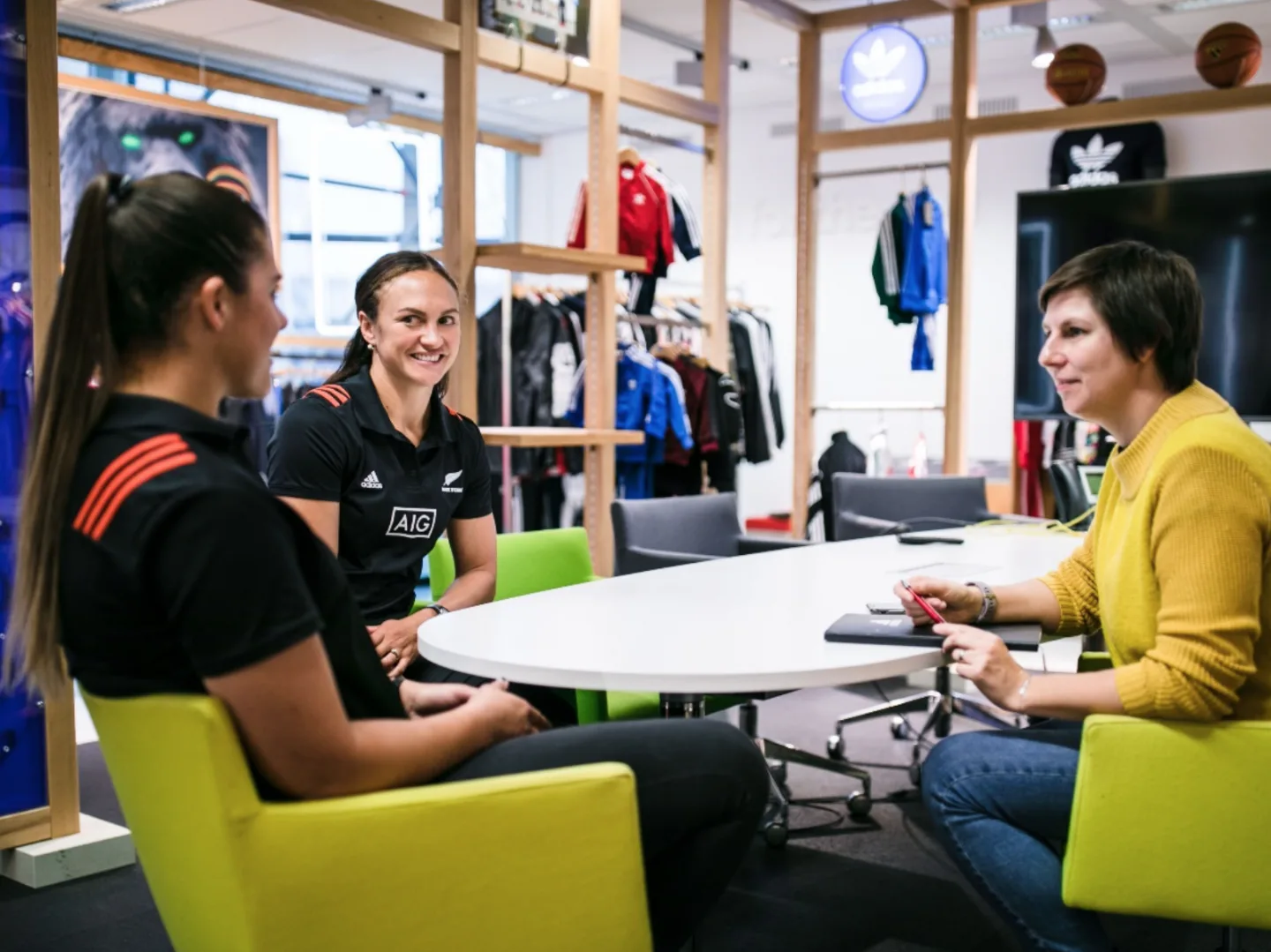 Eloise Blackwell and Les Elder discussing the many positives that sport has brought to their lives. ©Lily Heaton
Eloise Blackwell and Les Elder discussing the many positives that sport has brought to their lives. ©Lily Heaton
I sit down with Eloise and Les at the end of the Black Ferns tour in November 2018. They’ve just lost to France in Grenoble, but they’ve still taken positives from the experience.
Eloise:
“Yes, we lost, but at the same time it was a sellout crowd between two of the best teams in the world.”
Les:
“We put on an awesome display that went right to the 80th minute. The crowd was amazing and to get that many people to a game – a female game – is fantastic.”
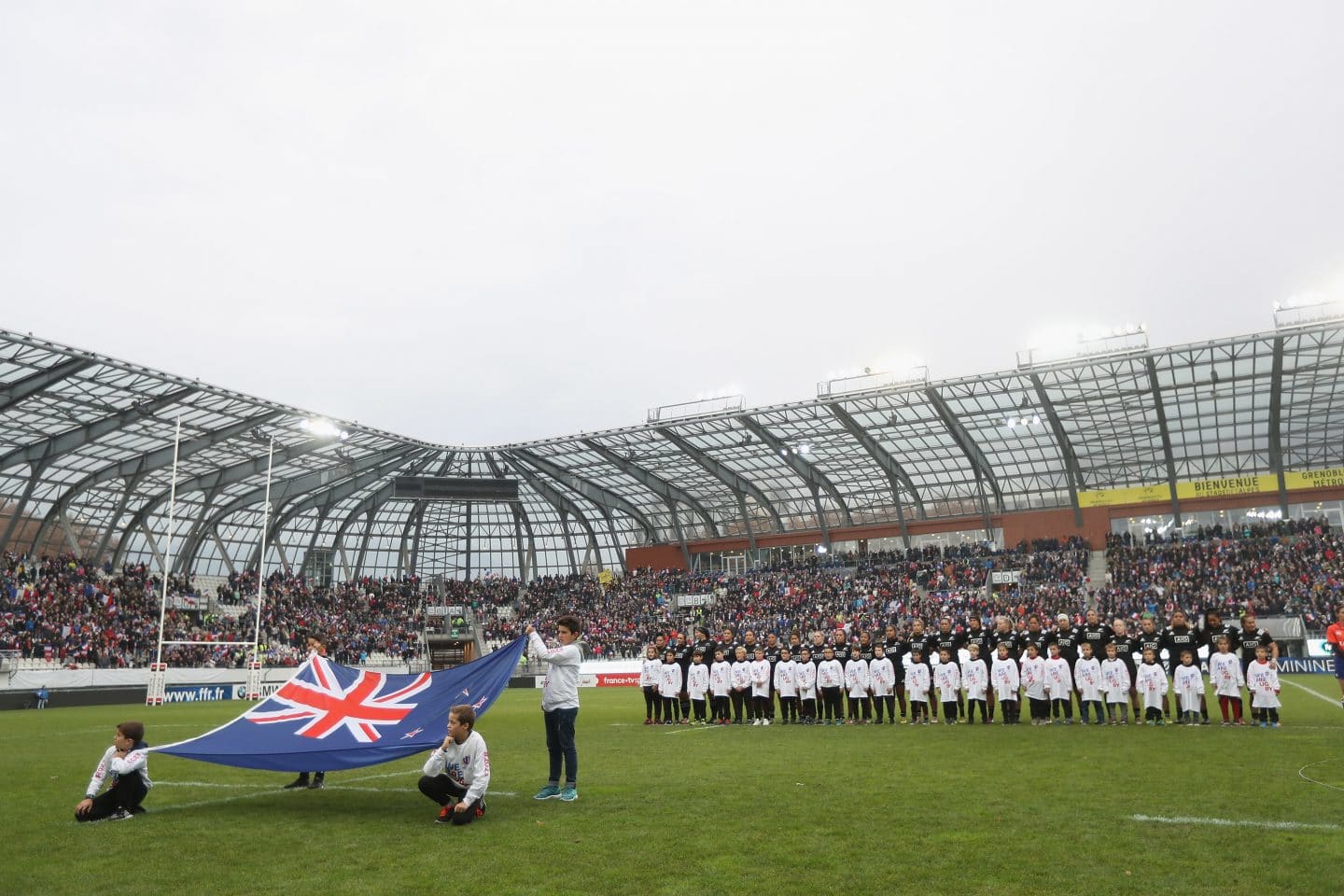 Women’s sport from rugby to soccer is filling stadiums and pulling in viewers providing a visibility to teen girls that was previously missing. ©Christopher Lee/Getty Images
Women’s sport from rugby to soccer is filling stadiums and pulling in viewers providing a visibility to teen girls that was previously missing. ©Christopher Lee/Getty Images
Interest in women’s rugby is rocketing. 20,000 fans filled the Stade des Alpes to see France end the Black Ferns’ 17-game unbeaten streak – a record for a women’s rugby audience in Europe. This came just months after 28,000 turned out at Eden Park to see the Black Ferns open for the men’s side against Australia.
Eloise:
“Each year, the momentum growing behind our game is just crazy. I think the (World Cup) semifinal between England and France had nearly 6 million viewers in France. It’s just huge.”
Les:
“There’s an audience there. There’s an appetite for it. We’re demonstrating that we can play the game and we can play it well at a fast pace. The physicality and skill is just like you’d get in the men’s games. It’s awesome for the brand of women’s rugby. It’s really exciting.”
You can’t be what you can’t see
The increase in spectators and TV coverage is providing much needed visibility for women’s rugby and women’s sport in general. The value of role models for young players can’t be underestimated.
Les:
“It’s important for females to see other females succeeding in life. Not just in sports, but in business and in politics like our female prime minister (Jacinda Ardern). It’s like if she can do it, we can do it. It’s not just the Black Ferns who are leading the way. Our female cricket team and our female league players are all getting more exposure. There is a real movement in New Zealand around females in sports.
"Obviously having a prime minister who’s a woman has just been awesome. It drives change and it’s great to think our little country is influencing other countries."
Les and Eloise aren’t just fans of their Prime Minister and the example she’s setting. It’s clear how much she admires the impact the Black Ferns have on girls in sport.
Lifelong lessons and sport go hand in hand
Eloise and Les aren’t just talking from their playing experience. They both work full-time jobs with girls and sport at the heart of them.
Eloise:
“I’m a secondary school teacher at an all-girls school for 13- to 18-year-olds. The school is in a non-affluent area in Auckland and there are over 2,000 girls. We’re quite fortunate that a lot of the girls are really interested in sport. I coach the rugby team, our football team and another sport – Waka Ama – which is like paddling.
Rugby is my main focus with the girls, but I’ve tried to build things around that: the things they can learn from being in the team and can then filter back into their school life.”
"Sport is like a vehicle. The more people we bring along for the ride, the more experience they’re going to get in terms of being able to relate with people and adapt to their differences."
Les:
“I’m a women’s rugby development officer for the Bay of Plenty Rugby Union. I’m tasked with growing women’s rugby and providing equal opportunities for girls to be involved in the game as a player, a coach, referee or administrator. It’s about having the same opportunities as the men would.
I also serve as manager of our Female Rugby Academy. That’s quite a new thing in New Zealand. There aren’t many provinces that have female-only academies, they’re often male-dominated where a couple of girls will make the cut. They don’t really get looked after as much as men would.
 Les Elder recognized the support systems for female players needed to be more holistic to build not only successful athletes, but also a contributing member of the community. ©Lily Heaton
Les Elder recognized the support systems for female players needed to be more holistic to build not only successful athletes, but also a contributing member of the community. ©Lily HeatonIn the Bay, we’re going to have a high-performance director of female rugby and a female performance group for up to 40 women.
When we created the model, we based it on 50-50 weighting where rugby is obviously a focus because that’s the vehicle, while the other 50% is on wellbeing. A big focus for us is growing a person to become well-rounded both on and off the field. We’re sitting with our athletes and we’re mapping out career plans, study plans, trying to grow them in terms of their self-confidence and doing what makes them happy.
Our measure of success is based on that – it could be that they go on to represent New Zealand, but another measure of success is that you might get qualified teachers and nurses and doctors. That’s just as important to us as the rugby.”
View from the grassroots
Eloise:
“In Auckland, there’s a high percentage of Maori and Pacific Islanders. Generally, they have big families with lots of siblings.
A lot of my girls will start off really well and then filter out as the season goes on as they have other commitments at home. They’ve got to look after their siblings when mom and dad are at work or other outside factors impacting their school life.”
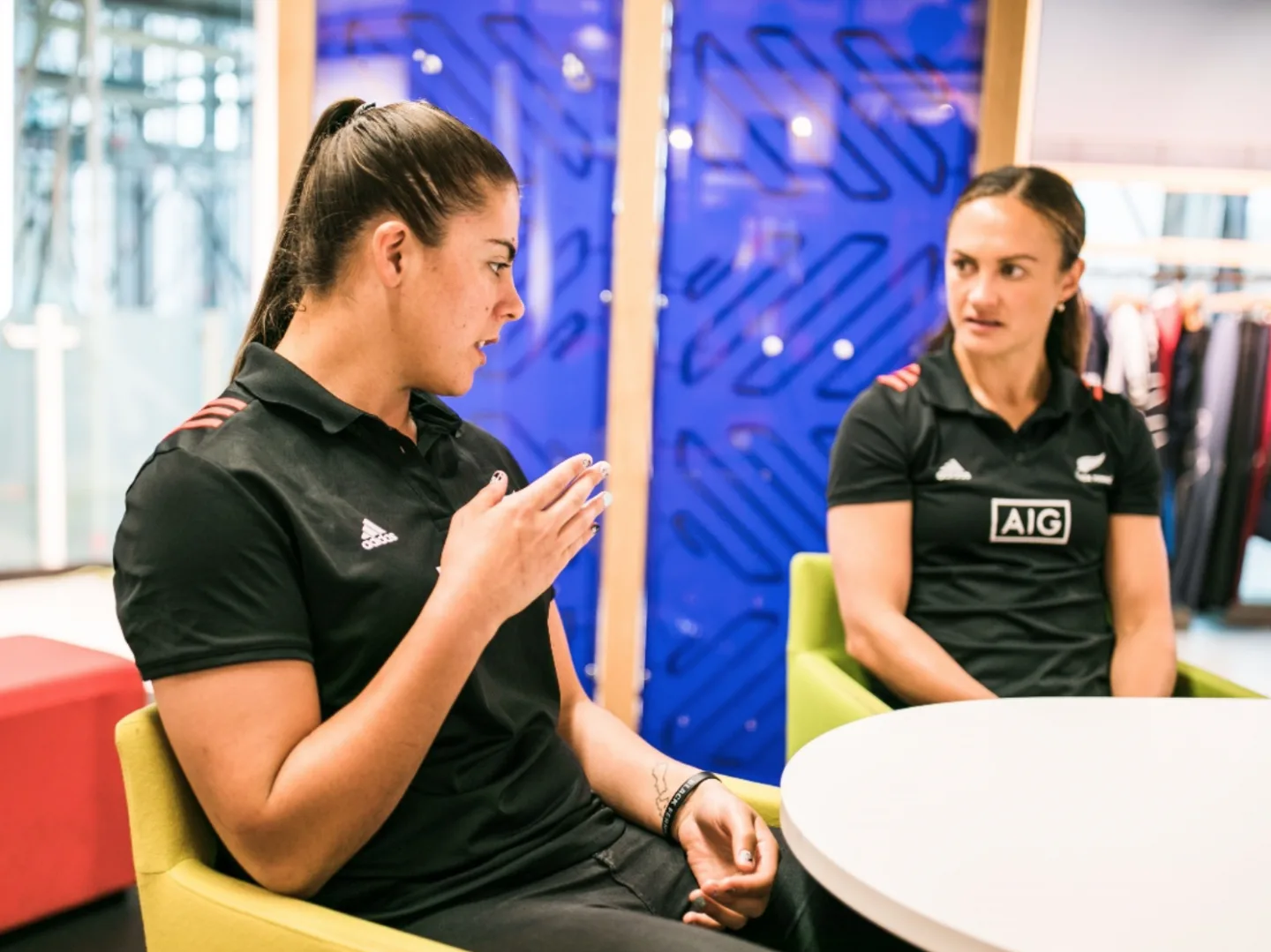 Teacher and Black Ferns lock, Eloise Blackwell sees first hand girls dropping out of sport and explains they type of support they need to stay in the game. ©Lily Heaton
Teacher and Black Ferns lock, Eloise Blackwell sees first hand girls dropping out of sport and explains they type of support they need to stay in the game. ©Lily Heaton
“Obviously, for me, as their teacher, school is their first priority. If I can get them for both school and rugby, that’s a bonus. It’s then my job to support them by understanding those commitments and helping to figure out how they can balance out their lives.”
Transferrable skills
Eloise:
“If you’ve got young adults playing sport then you get healthy, clear minds that are able to perform well on the field, as well as in the classroom. All the life skills that you get from sport cross over: the discipline to do your homework and the discipline in your training. It’s all transferable.”
Les:
“I see that my girls are very insecure. They’re still figuring out who they are and getting comfortable in their own skin. It’s my job to guide them to feeling comfortable in who they are and what they like, what they’re good at and what they’re not good at.
Growing up, I had a massive support group around me. My parents pushed me, took me to trainings and games all over the country. A lot of the girls I’m working with don’t have that. The ones that do are the ones that are really good and doing really well. The ones that don’t can’t really see their full potential and they’ve got so much of it. No one’s telling them what they’re capable of.
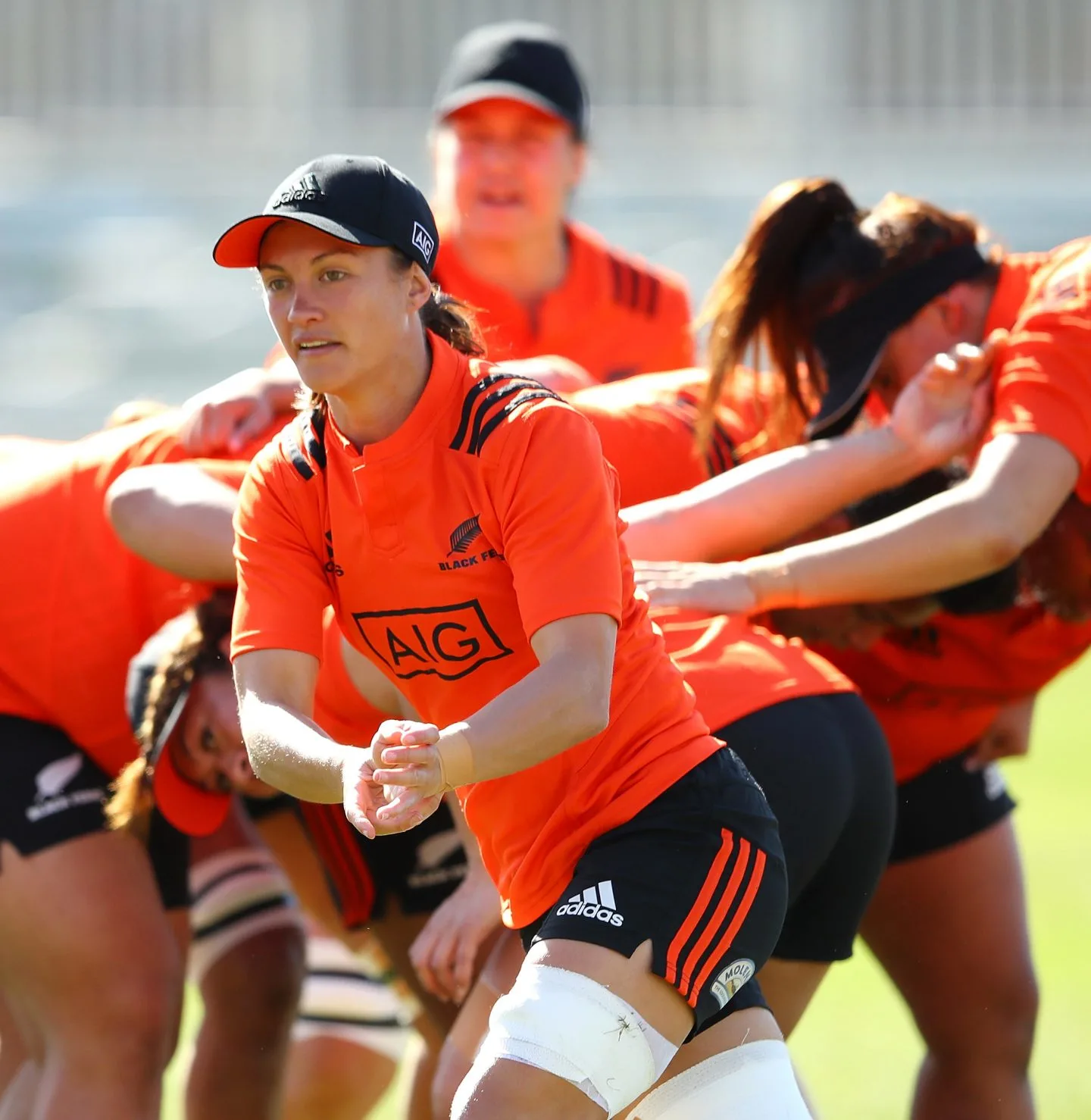 Thanks to a wide support network Les Elder has risen through the ranks of the Black Ferns to now captain the team and inspire a new generation of sports-loving girls. ©Cameron Spencer/Getty Images
Thanks to a wide support network Les Elder has risen through the ranks of the Black Ferns to now captain the team and inspire a new generation of sports-loving girls. ©Cameron Spencer/Getty Images
“A big thing for me is to try and encourage them to just have fun with rugby. I think when they stop smiling, when it starts to become a chore, that’s when you need to ask ‘Okay, what’s going on?’
I try not to put a performance focus on them, but more emphasis on enjoying living a healthy lifestyle. Enjoy rocking up every day, training with your mates and just hanging out on the grass, kicking a ball around and having fun.”
The results of “just having fun” are incalculable
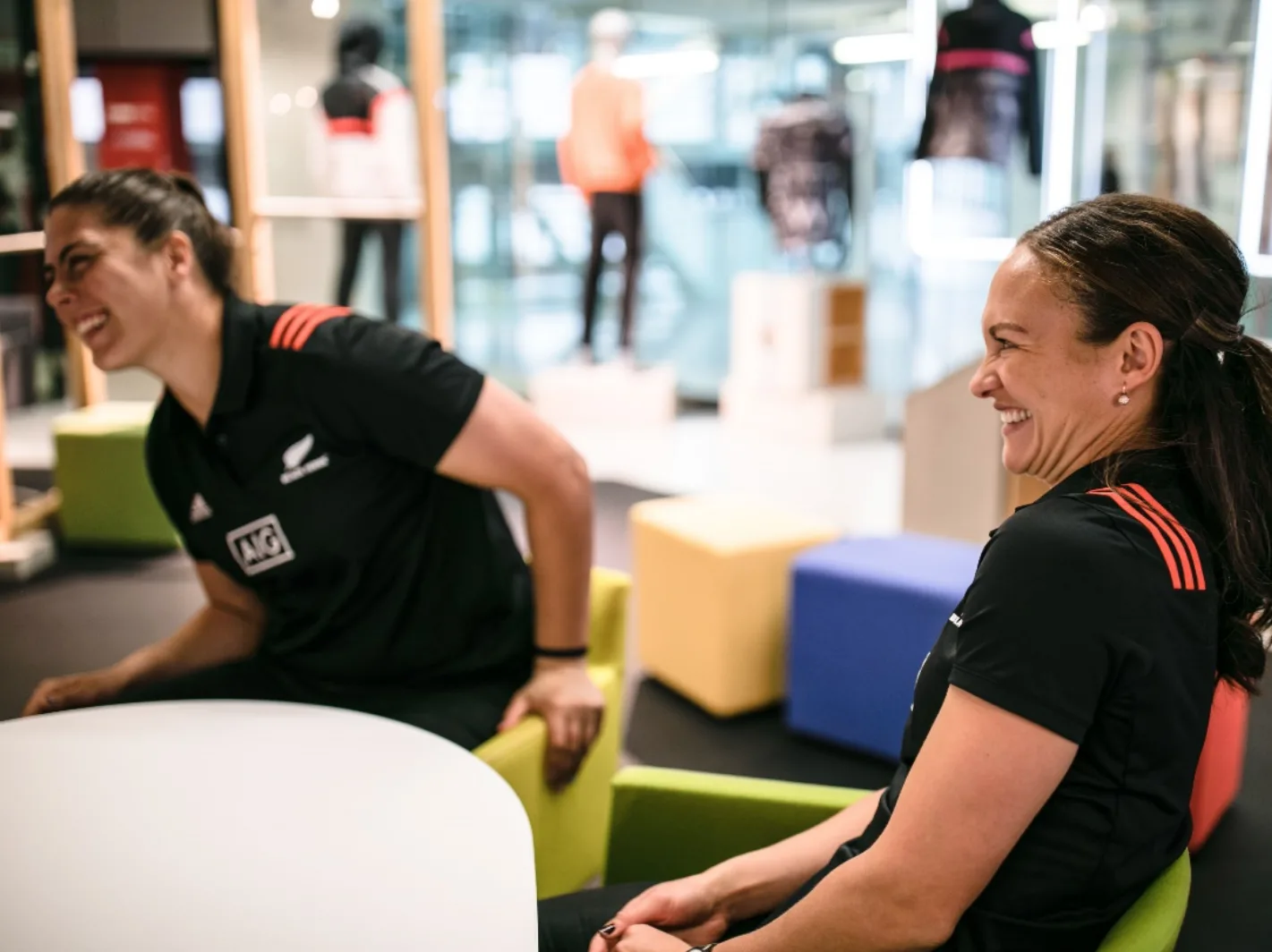 The camaraderie between Eloise, Les and the rest of the Black Ferns is clear for all to see. ©Lily Heaton
The camaraderie between Eloise, Les and the rest of the Black Ferns is clear for all to see. ©Lily Heaton
"As well as the life skills we get from rugby, we’ve had the opportunity to travel, to experience different cultures, to be put under pressure playing in front of big crowds. It exposes you to a whole lot of things that you wouldn’t get if you weren’t playing sport."
Les:
I’ve had the awesome opportunity to be an ambassador for sports in New Zealand: I get to travel the world, I get challenged to address crowds and speak to the media. We’re constantly learning as we get these opportunities. We’re from tiny places in New Zealand, these things are not a given!”
Doing the jersey proud
Les:
“You asked at the beginning about us being role models. For me, we have a duty – a responsibility that while we’re in this black jersey and we’re in this Black Ferns environment, we have a window where we can actually influence and impact people’s lives in a positive way. I take that very seriously. We have the privilege of using our opportunity to create opportunities for others. I think that’s pretty special.”
"We have the privilege of using our opportunity to create opportunities for others."




